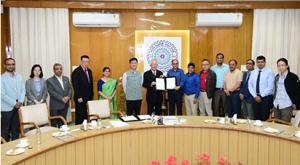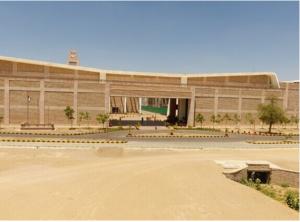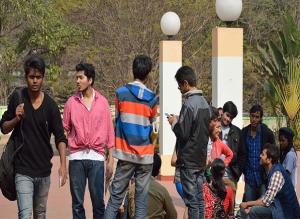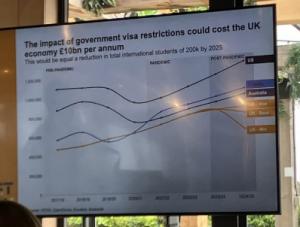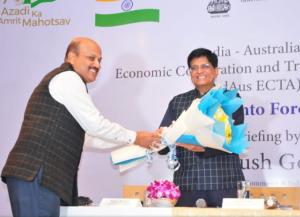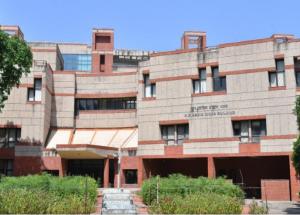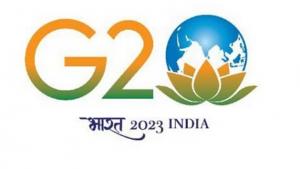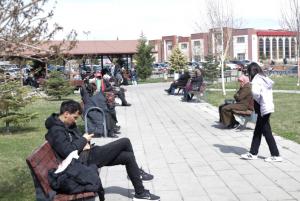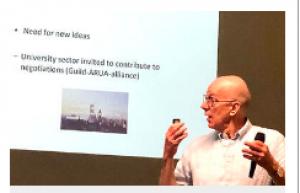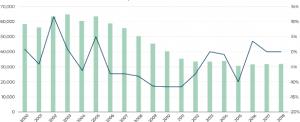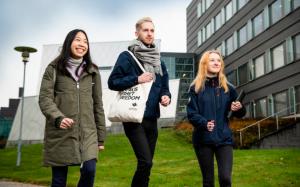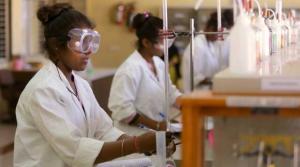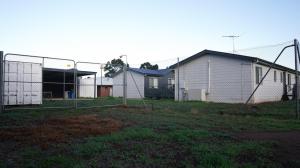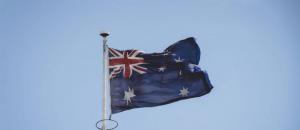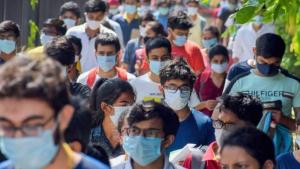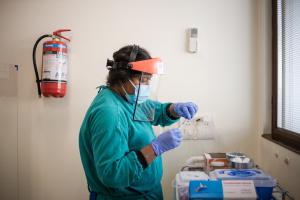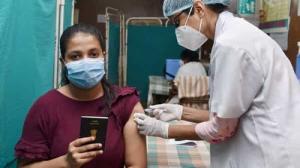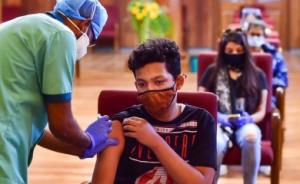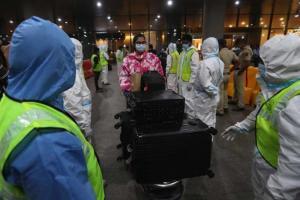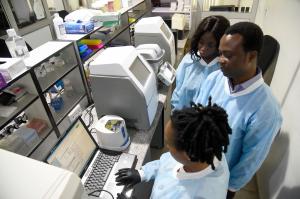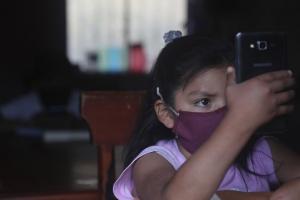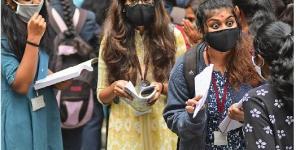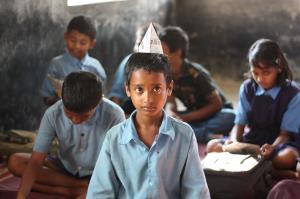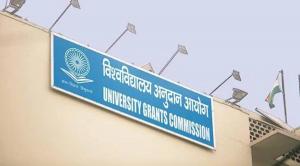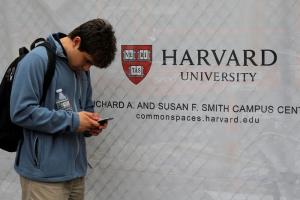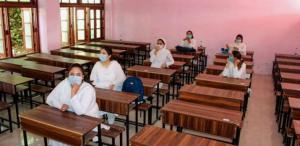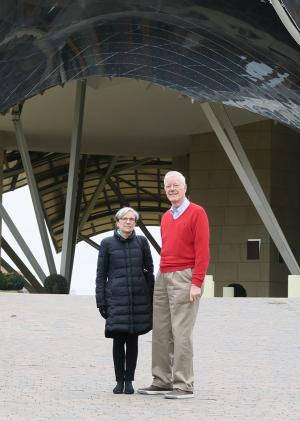In the Times Higher Education (THE) Impact Rankings 2023, which are geared to assessing institutions’ contribution to the United Nations (UN) Sustainable Development Goals (SDGs), Australian and Canadian universities dominate the top 10 of the overall category, but Australia takes first place in seven of the individual 17 SDGs.
An Australian institution, Western Sydney University, has come top overall for the second year running in the latest THE Impact Rankings 2023, released on 1 June.
The ranking, now in its fifth year, is the world’s only one that measures universities’ contributions specifically to the United Nations Sustainable Development Goals, although there are other rankings that assess universities’ contribution to sustainability, such as the QS World University Rankings, Globethics.net University Ranking and UI Green Metric.
The THE ranking assesses commitment to sustainability across four broad areas: research, stewardship, outreach and teaching based on self-submitted data from universities. However, a university’s ranking is based on its performance in SDG 17 and three other SDGs, rather than across all the SDGs.
Professor Barney Glover, vice-chancellor and president of Western Sydney University, said: “We are committed to promoting the UN Sustainable Development Goals and ensuring our activities across teaching, research and international partnerships are fully aligned with the critical global imperative of achieving these ambitious 2030 targets.
“This ranking system recognises those commitments and brings into sharp focus the global challenges we face and the need for urgent collaborative action.”
Australia and Canada dominate top 10
Australian and Canadian universities dominate the top 10 of the overall category.
Australia was represented by Western Sydney University, which stayed top overall (the same as last year) and the University of Tasmania in fifth and RMIT University in joint seventh place.
However, there were also four universities from Canada in the top 10: Queen’s University at third, the University of Alberta at joint seventh, and both the University of Victoria and Western University at joint ninth. For Western that was a drop of six places from third last year.
Also in the top 10: University of Manchester, UK came second; Universiti Sains Malaysia came fourth; Arizona State University (Tempe), US was sixth and Aalborg University, Denmark was joint ninth.
Professor Dame Nancy Rothwell, president and vice-chancellor of the University of Manchester, said: “Social responsibility is a core goal and is very important to us. So, we’re delighted to be ranked first in the UK, first in Europe and second in the world.
“These impact rankings cover the social and environmental contribution of universities across their full range of functions – through their research, their students, their public engagement and their operations – and we’re proud to be part of this ever-growing community of universities around the world leading work to make a difference.”
UK universities have the most universities in the overall top 100 with 26, followed by Canada with 16 and Australia has 15. New Zealand and the US each have seven in the top 100.
Among the global regions: Western Sydney University, Australia (1st) was top overall in the world and Australasia; Queen’s University, Canada (3rd) was the top ranked institution in North America; University of Manchester, UK (2nd) came top in Europe; Universiti Sains Malaysia (up one place to 4th) was top in Asia; National Autonomous University of Mexico (32nd) was top in Latin America; and the University of Johannesburg (joint 46th) was the top ranked institution in Africa, up from 69th.
Outside of the top 10 there were good performances from institutions in emerging countries. Thailand’s Chulalongkorn University came 17th overall, for instance, and the University of Indonesia came 20th overall.
Rankings by individual SDG
Western Sydney topped three of the 17 individual rankings: SDG 5 – Gender equality, SDG 12 – Responsible consumption and production, and SDG 17 – Partnerships for the goals, and is in the top 10 for six others. The university took fifth spot for SDG 11 – Sustainable cities and communities.
From Oceania, Australian universities dominated the top spots in the individual SDGs, taking first place in seven of the 17 goals.
European universities came top in four goals: SDG 3 – Good health and wellbeing, SDG 6 – Clean water and sanitation, SDG 9 – Industry, innovation and infrastructure, and SDG 15 – Life on land.
Asian universities took three top spots: SDG 7 – Affordable and clean energy, SDG 8 – Decent employment (joint top), and SDG16 – Peace, justice and strong institutions.
African universities took top spot in two goals: SDG 1 – No poverty, and SDG 4 – Quality education.
North American universities also came top in two goals: SDG 2 – Zero hunger, and SDG 11 – Sustainable cities and communities. However, it is notable that US universities did not come top in any goal, a sharp contrast with their performance in traditional rankings where they dominate.
Michael M Crow, president of Arizona State University, said: “In a world of exponential change, unparalleled technological advancement and persistent inequality, institutions dedicated to knowledge creation have a critical responsibility to help forge a better future.”
Of his university, which dropped from second last year to sixth overall this year, Crow said its “design and priorities demonstrate our determination to master global challenges, and the Impact Rankings serve as an important gauge of our progress – and a fuel for our aspirations”.
Among Latin American universities, National Autonomous University of Mexico came second for SDG 7 – Affordable and clean energy.
Also notable is the fact that mainland China had only 12 universities featured, with Shanghai University coming highest overall at 97th and eighth in SDG 7 – Affordable and clean energy, while Southern University of Science and Technology (SUSTech) came 10th for SDG 8 – Decent work and economic growth.
India had one institution in the top 100 overall: Amrita Vishwa Vidyapeetham, which came joint 52nd.
Like China it had two institutions in the top 10 of an individual SDG, with Manipal Academy of Higher Education fourth in SDG 5 – Gender equality, and Indian Institute of Technology Guwahati sixth in SDG 7 – Affordable and clean energy.
The performance of Malaysia (two top spots), Ghana, Indonesia, Ireland and South Africa (one top spot each) suggests the rankings allow greater opportunity for countries that have not been high performers in traditional rankings to do well, including developing countries and small population advanced industrialised nations.
The rankings for the two most popular SDGs (excluding SDG 17) were topped by Kwame Nkrumah University of Science and Technology, Ghana (SDG 4 – Quality education – with 1,304 universities), and RCSI University of Medicine and Health Sciences, Ireland (SDG 3 – Good health and well-being – with 1,218 universities).
Results for each of the 17 SDGs, including a description of the content for the metrics used to score the SDGs:
· SDG 1 – No poverty – University of Johannesburg (South Africa): Research on poverty and support for students from poor families.
· SDG 2 – Zero hunger – Queen’s University (Canada):Research on hunger, teaching on food sustainability and commitment to tackling food waste and hunger on campus and locally.
· SDG 3 – Good health and well-being – RCSI University of Medicine and Health Sciences (Ireland): Research on key diseases and conditions, support for healthcar professions, and health of students and staff.
· SDG 4 – Quality education – Kwame Nkrumah University of Science and Technology (Ghana): Contributions to early years and lifelong learning and commitment to inclusive education.
· SDG 5 – Gender equality – Western Sydney University (Australia): Research and policies on gender equality and commitment to recruiting and promoting women.
· SDG 6 – Clean water and sanitation – University of Exeter (UK): Research related to water, water usage and commitment to ensuring good water management in the wider community.
· SDG 7 – Affordable and clean energy – Universiti Teknologi Malaysia (Malaysia): Energy research, energy use and policies, and commitment to promoting energy efficiency.
· SDG 8 – Decent work and economic growth – IPB University (Indonesia), RMIT University (Australia): Economics research, employment practices and share of studentstaking work placements.
· SDG 9 – Industry, innovation and infrastructure – University of Erlangen-Nuremberg (Germany), University of Stuttgart (Germany), Technical University of Munich (Germany) University of Twente (Netherlands): Research on industry and innovation, number of patents and spin-off companies and research income from industry.
· SDG 10 – Reduced inequalities – RMIT University (Australia): Research on social inequalities, policies on discrimination and commitment to recruiting staff and students from under-represented groups.
· SDG 11 – Sustainable cities and communities – Simon Fraser University (Canada): Research on sustainability, role as custodians of arts and heritage and internal approaches to sustainability.
· SDG 12 – Responsible consumption and production – Western Sydney University (Australia): Research on responsible consumption and approach to the sustainable use of resources.
· SDG 13 – Climate action – University of Tasmania (Australia): Research on climate change, use of energy and preparations for dealing with consequences of climate change.
· SDG 14 – Life below water – Macquarie University (Australia): Research on life below water and education on and support for aquatic ecosystems.
· SDG 15 – Life on land – University of Manchester (UK): Research on life on land and education on and support for land ecosystems.
· SDG 16 – Peace, justice and strong institutions – Universiti Sains Malaysia (Malaysia): Research on peace and justice, participation as advisers for government and policies on academic freedom.
· SDG 17 – Partnerships for the goals – Western Sydney University (Australia): The broader ways in which universities support the SDGs throughcollaboration with other countries, promotion of best practices and publication of data.
Canadian universities submitted the most goals – with an average of 13.2 SDGs out of 17. The global average was nine SDGs per university.
The nine countries that participated in the rankings for the first time this year are: Brunei, Curaçao, Ethiopia, Mauritius, Mozambique, Panama, Serbia, Syria and Zimbabwe.
Broader focus than traditional rankings
A record 1,705 universities from 115 countries and regions were assessed in the ranking. Progress was measured for each of the individual 17 SDGs, and across the goals as a whole, which saw 18 universities from 10 countries and regions achieve number one positions.
Phil Baty, THE’s chief knowledge officer, said: “It moves away from the traditional and more narrow approach to rankings and looks at far broader issues – examining how universities are improving our world.”
To appear in the overall ranking table, universities must have submitted to SDG 17 (partnerships for the goals) and a minimum of three other SDGs. The total score was calculated as follows:
• SDG 17 – 22%
• Top scoring SDG – 26%
• Second best scoring SDG – 26%
• Third best scoring SDG – 26%.
In addition, the score for the overall ranking is an average of the last two years’ total scores.
According to THE communications manager Ben Miller, this scoring measure was implemented for the first time this year to “increase the stability of the overall ranking, and to recognise the overall ranking's position as a broader assessment of a university's institution-wide commitment to sustainability in general”.
Baty said the impact rankings are an “extremely valuable tool” for universities, governments, funders and policymakers to understand how universities are supporting the drive to meet the UN’s SDGs and what must be done to improve their performance even further in this massively important area.”
He added that the rankings “are also vital for millions of prospective students who are increasingly demanding to see evidence that the universities they consider for their education are committed to sustainability and to helping them to become sustainably minded citizens”.
Turkey had the second most universities in the overall ranking with 79 and its highest placed was Istanbul Tehnical University, which came joint 58th. Japan came third with 78 ranked, and Hokkaido University coming 22nd overall.
The Russian Federation had the most universities in this year's impact ranking with 92. They also had the most in the overall category with 86. Japan had the second most universities in this year's ranking (overall) with 91, and Turkey had the second most universities in the overall ranking with 79.
Miller said THE had “minimised” visibility of Russian and Belorussian universities in all rankings by “greying them out” and by not making their institutional profiles available. However, the actual position of Russian institutions in the rankings remained unaffected.
In a statement released in March 2022, THE said it would be taking steps to ensure that Russian universities “are given less prominence in the rankings, and that their university profiles are not available”.

Source link: https://www.universityworldnews.com/post.php?story=20230601094948926
















